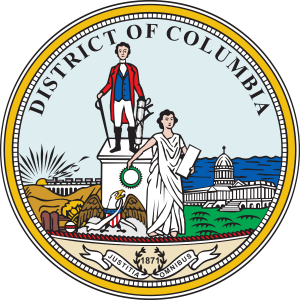 The District of Columbia Council finalized the 2021 fiscal year budget yesterday, which removed the recently enacted digital advertising tax. The Council’s July 28 vote formalized the elimination of a proposed 3% sales tax on gross receipts from traditional and digital advertising services and from the sale of personal information (e.g., IP addresses, , names, phone numbers, biometric data etc.). The proposal defined “digital advertising services” as “advertising services related to advertisements displayed on a digital interface, including advertisements in the form of banner advertising, search engine advertising, interstitial advertising, or other comparable advertising.” “Digital interface” was defined as “any combination of hardware and software that an individual may use to access internet-based platforms such as websites, parts of websites, or applications.”
The District of Columbia Council finalized the 2021 fiscal year budget yesterday, which removed the recently enacted digital advertising tax. The Council’s July 28 vote formalized the elimination of a proposed 3% sales tax on gross receipts from traditional and digital advertising services and from the sale of personal information (e.g., IP addresses, , names, phone numbers, biometric data etc.). The proposal defined “digital advertising services” as “advertising services related to advertisements displayed on a digital interface, including advertisements in the form of banner advertising, search engine advertising, interstitial advertising, or other comparable advertising.” “Digital interface” was defined as “any combination of hardware and software that an individual may use to access internet-based platforms such as websites, parts of websites, or applications.”
The D.C. advertising tax proposal was similar to the digital advertising tax bills we have seen from Maryland, New York, and Nebraska earlier this year in terms of how it defined “digital advertising services” and “digital interface.” However, there are two key distinctions to note: (1) the D.C. proposal included taxing physical advertising services (e.g., ads on billboards or in newspapers) in addition to digital advertising services; and (2) the D.C. proposal failed to address how the advertising service receipts would be sourced. The D.C. proposal met a similar fate as the Maryland digital advertising tax bill, which was vetoed by Governor Larry Hogan on May 7, 2020. Further, there has been no legislative action taken on the Nebraska and New York digital advertising tax proposals since February and March, respectively.
The D.C. advertising tax proposal was originally put forth by D.C. Council Chair Phil Mendelson (D) and Council member David Grosso (I) in response to a budgetary shortfall experienced as a result of COVID-19. The proposed tax provision was originally fairly broad and drafted to apply to every stage of the advertisement creation process from “planning, creating, placing or displaying advertising in newspapers, magazines, billboards, broadcasting, and other media, including without limitation, the providing of concept, writing, graphic design, mechanical art, photography, and production supervision.” A subsequent amendment clarified that the tax was only intended to apply to the “placement and display” of advertisements and not on “planning and creation.”
Since the ad tax proposal’s first introduction as an amendment to the Budget Support Act of 2020 earlier this month, the Council has received significant feedback from various groups, including local media organizations, opposing the tax. Despite the success of these groups’ efforts and removal of the provision from the current budget, the Council expects to revisit the budget in two months to assess the full impact of COVID-19. Further, the Council is expected to act on legislation to revive the Tax Revision Commission, an independent body of 11 members originally established by the Council that prepares and makes comprehensive recommendations to the Council regarding fair apportionment of taxes, broadening the tax base, tax policy, etc. If the Tax Revision Commission is made permanent, Council Chair Mendelson has indicated that the Commission will be tasked with revisiting the advertisement services and personal information tax proposal and assess the budgetary impact.
 SeeSALT Blog
SeeSALT Blog

